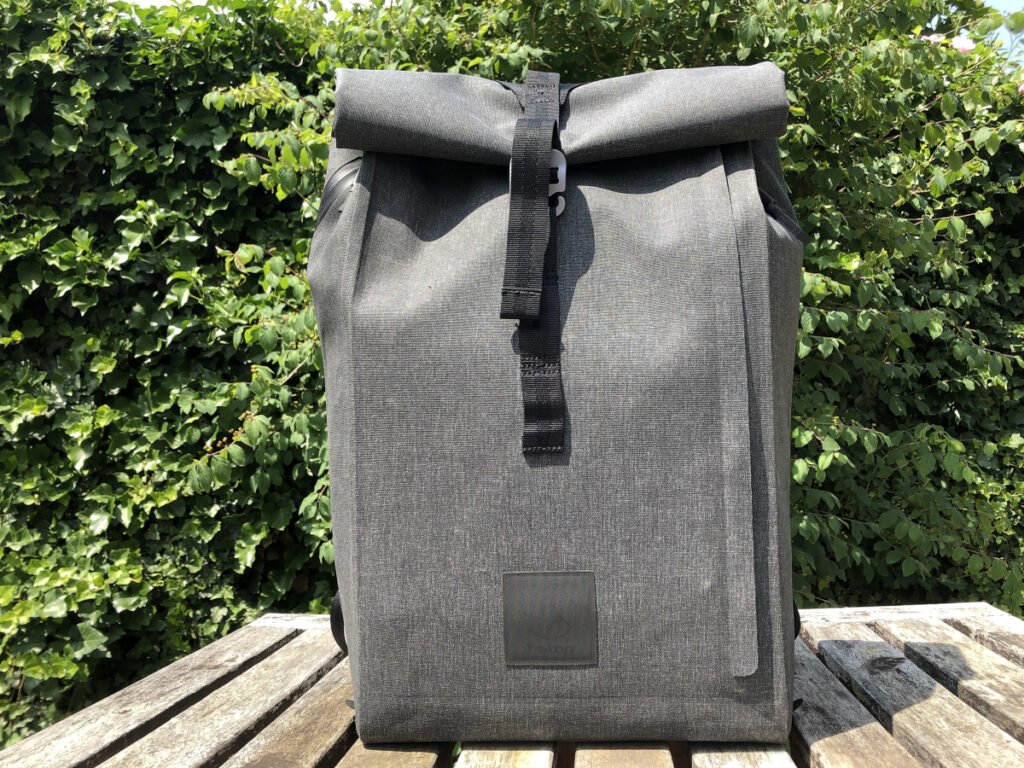The best lens for sports photography lets you catch the action. Sports photography is a tough discipline. Athletes move quickly, the action is intense, and you can’t always get close to the players. The best sports photography lens helps you get the shots you need from the pitch, court, or track.
The Canon EF 70-200mm f/2.8L IS III USM is our top sports photography lens. It has the all-around qualities you need to succeed: It’s fast, has image stabilization, and has a zoom range to get you close to the action. We also have fantastic Nikon, Sony, and Fujifilm sports photography lenses.
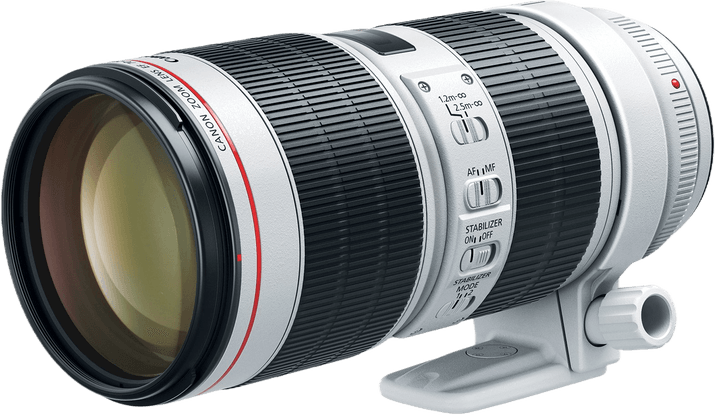
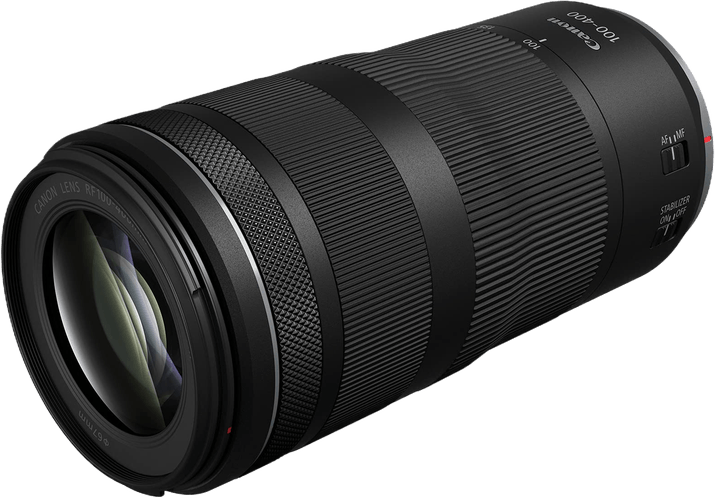
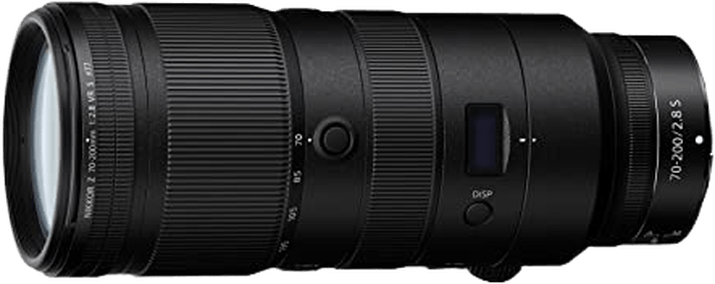
What is the Best Lens For Sports Photography?
The best lens for sports photography helps you capture sporting action from the sidelines. To do that, you need magnification to get close-up shots of distant athletes. You need a fast aperture or stabilization to help with tricky lighting conditions. And you need a fast autofocus (AF) motor so you never miss a shot.
All the lenses in this list have been chosen because they have those qualities. And we’ve included options from all the best camera lens brands, so you can find the perfect sports lens no matter what camera system you have.
Here’s a quick overview of all the best lenses for sports photography. We examine each lens in more detail in the following section. We also have a buyer’s guide at the end of the article to help you find the best sports photography lens.

- Fast lens for action
- Wide aperture for stunning low-light performance
- Incredible build quality that gives you edge-to-edge clarity
- A versatile zoom range for for everything from environmental shots to portraits

- Large zoom range for a variety of sports shots
- Reliable vibration reduction system keeps your images sharp
- The 18mm wide angle is perfect for environmental sports photos

- Fast and constant f/2.8 max aperture
- Built-in Vibration Reduction (VR) system
- Custom control ring
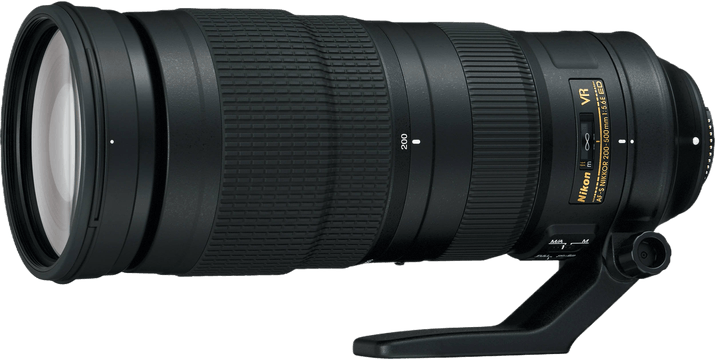
- Incredible reach with a 500mm max focal length
- Edge-to-edge clarity throughout the zoom range
- Built-in Vibration Reduction system
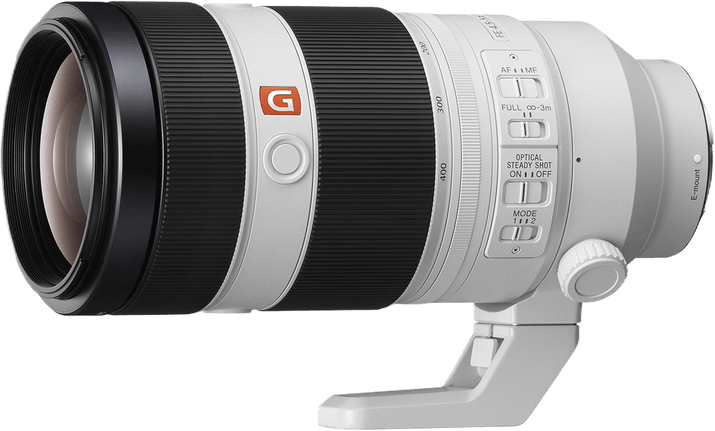
- Dual DDSSM AF motors
- Superb optical quality thanks to specialist elements
- Custom torque ring and focus hold button
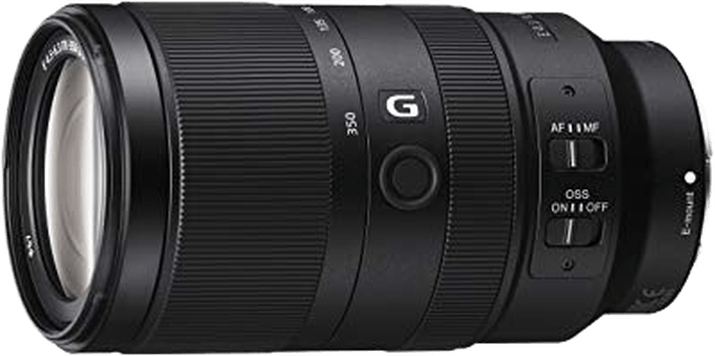
- The long telephoto focal length gives you incredible reach
- The XD AF motor is rapid and accurate with moving subjects
- A convenient button to easily switch between auto and manual focus
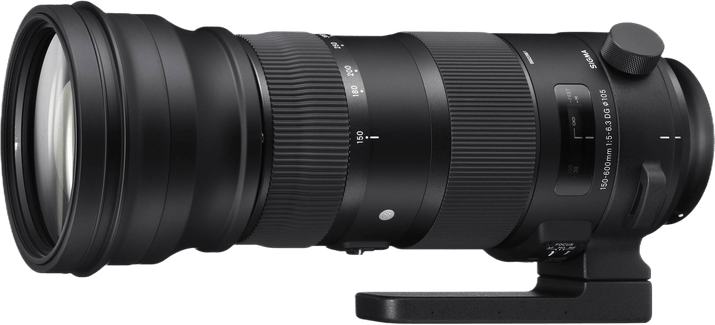
- Optical stabilization built-in
- The focus range limiter increases focusing efficiency
- Fast and quiet HSM AF system
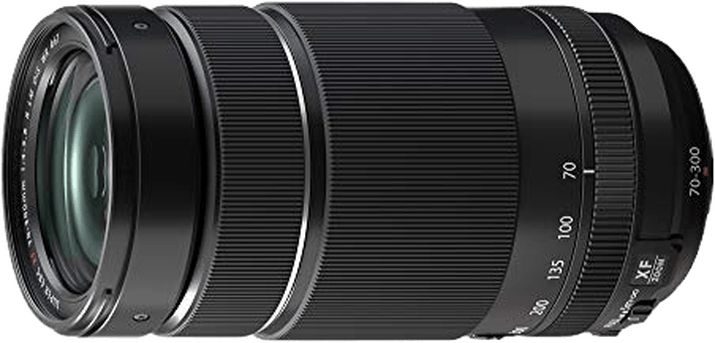
- The powerful image stabilizer gives you sharp images and more exposure options
- The weather-sealed construction makes it ideal for sports photography
- Compatible with all Fujifilm X-series cameras
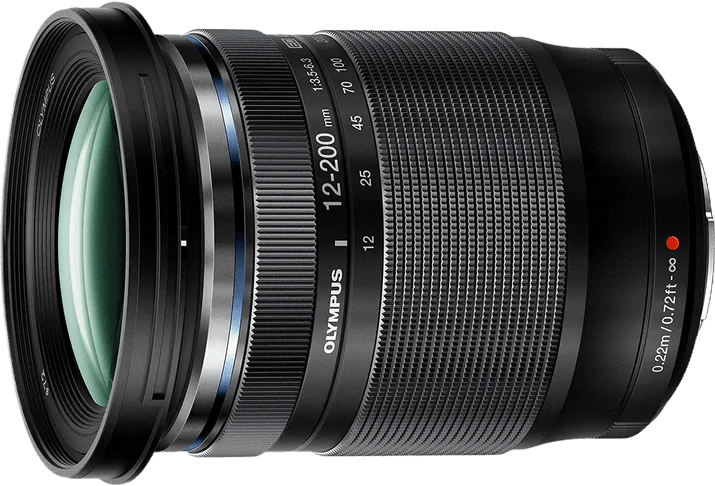
- Compatible with all Olympus MFT cameras
- Super-wide and long zoom for varied sports shots
- The durable construction means you can shoot sports in all conditions
Best Lenses for Sports Photography
Now we’ll look at each lens in more detail so you can see exactly why we’ve picked them.
1. Canon EF 70-200mm f/2.8L III USM

| Brand |
Brand
Canon
|
| Maximum Aperture |
Maximum Aperture
f/ 2.8
|
| Focal Length Range |
Focal Length Range
70-200 mm
|
| Best for |
Best for
Canon DSLR cameras
|
The Canon EF 70-200mm f/2.8L IS III is a versatile sports photography lens for Canon DSLR cameras.
The 70-200mm focal length range is exactly what a versatile sports photographer needs.
The 70mm end is great for wider environmental shots and snapping portraits of athletes. And the 200mm end provides the magnification you need to get close to the action from the sidelines.
The optical quality is excellent. The lens has 23 glass elements arranged in 19 groups. It uses Canon’s Air Sphere Coating (ASC) to reduce ghosting and flare. This provides edge-to-edge sharpness throughout the zoom range.
Some sports photographers need a longer focal length. But the f/2.8 aperture gives you more freedom with your exposure settings to capture action shots. It’s also constant, so you don’t lose any stop when you zoom in.
Optical image stabilization also gives you more support in low light. Offering 3.5 stops of shake correction, allowing for slower shutter speeds with a reduce risk of motion blue. That means sharp shots in low light.
The Canon lens uses an Ultrasonic Motor (USM) for the autofocus. It’s quick, reliable, and quiet. You can get the shot you want when the sport requires silence, like golf, tennis, or ballet.
The build quality is excellent with thorough weather sealing. That means you can cover outdoor sporting events even in bad conditions.
The EF 70-200mm f/2.8L IS III. is a rugged telephoto zoom with a fast aperture and sharp optics. There’s no wonder it remains one of the most popular Canon EF lenses among sports photographers.
You can see all the best Canon lenses for sports photography in this article.
2. Canon RF 100-400mm f/5.6-8 IS USM

| Brand |
Brand
Canon
|
| Maximum Aperture |
Maximum Aperture
f/ 8.0
|
| Focal Length Range |
Focal Length Range
100-400 mm
|
| Best for |
Best for
Canon mirrorless cameras
|
The Canon RF 100-400mm f/5.6-8 IS USM is the best sports lens for Canon mirrorless cameras. It has a wide zoom range with excellent magnification. And it’s one of the most affordable telephoto zoom lenses on the market.
It doesn’t have the fastest maximum aperture, especially when zoomed in at 400mm. But it does have optical stabilization that offers 5.5 stops of shake correction. This promises better results in low light, allowing you to cover indoor or flood-lit events.
Despite the affordable price tag, the lens still delivers sharp optical quality throughout the zoom range. And a Ultra-low Dispersion (UD) element that reduces chromatic aberration, giving you sharp, clean shots.
It also has Canon’s superior Nano Ultra-Sonic Motor (USM) to drive the autofocus. The response times are super quick and it’s practically silent in operation.
A focus ring lock and custom control ring add to the lens’s usability, improving the user experience. It’s also far more lightweight and compact that many competitor telephoto zooms. It’s an easy fit for any decent camera backpack.
See all the best Canon RF lenses in our full blog post.
3. Nikon Z 70-200mm f/2.8 VR S

| Brand |
Brand
Nikon
|
| Maximum Aperture |
Maximum Aperture
f/ 2.8
|
| Focal Length Range |
Focal Length Range
70-200 mm
|
| Best for |
Best for
Nikon mirrorless cameras
|
The Nikon Z 70-200mm f/2.8 S is a superb lens for Nikon’s mirrorless camera range. It has all the attributes a sports photography lens needs. And it’s part of Nikon’s superior S line, so you know you’re dealing with premium quality.
It doesn’t give you the longest telephoto reach, but 200mm is enough to get close-up shots from the sidelines. It does give you sharp optical quality throughout the zoom range, with practically no distortion or aberrations.
The fast f/2.8 maximum aperture is ideal for sports photography. It gives you incredible control over your exposure settings, allowing you to work in low light. And it’s a constant max aperture, so you don’t lose any stops when you zoom in.
Built-in optical Vibration Reduction (VR) is another bonus for sports shooters. Ensuring sharper shots at slow shutter speeds, it gives you even better low-light performance. This is helpful when dealing with fast-moving athletes.
A custom control ring and function button allow you to adjust your settings manually, so you don’t have to take your eye away from the viewfinder.
The build quality is excellent, with sealing against dust and moisture. That means you can cover dry and wet events.
Check out more of the best Nikon lenses for sports photography in this link. Or you can see all our Nikon Z lens recommendations.
4. Nikon AF-S FX 200-500mm f/5.6E ED VR

| Brand |
Brand
Nikon
|
| Maximum Aperture |
Maximum Aperture
f/ 5.6
|
| Focal Length Range |
Focal Length Range
200-500 mm
|
| Best for |
Best for
Nikon DSLR camerars
|
If you’re still using a Nikon DSLR camera, the Nikon AF-S 200-500mm f/5.6E ED VR is the perfect lens for sports photography.
The wide zoom range and strong magnification are perfect for capturing sports. You get plenty of flexibility and the reach you need to snap distant sportsmen and women.
A f/5.6 max aperture isn’t the fastest, but it is constant throughout the zoom range. And it’s also backed by Nikon’s Vibration Reduction (VR) system. This offers 4.5 stops of shake compensation, giving you sharper shots in dim conditions.
Specialist glass, like the Extra-low Dispersion (ED) elements, reduces imperfections like chromatic aberration. There’s very little distortion, even at the edges at the widest angle.
A Silent Wave Motor (SWM) gives you fast and quiet AF support. The response times are excellent, so you rarely miss a shot.
We have more of the best Nikon F lenses in this article.
5. Sony FE 100-400mm f/4.5-5.6 GM OSS

| Brand |
Brand
Sony
|
| Maximum Aperture |
Maximum Aperture
f/ 5.6
|
| Focal Length Range |
Focal Length Range
100-400 mm
|
| Best for |
Best for
Sony full frame cameras
|
The Sony FE 100-400mm f/4.5-5.6 GM OSS is the best sports photography lens for Sony users. It’s the perfect match for their high-performance mirrorless cameras.
Using double linear Direct Drive Super-Sonic Motors (DDSSM), the lens delivers super-fast autofocus support. The response times are just a fraction of a second at any point in the zoom range.
The f/4.5-5.6 max aperture isn’t the fastest, but it is decent for a lens with such a large focal range. You also have support from Sony’s Optical SteadyShot (OSS) stabilization, which provides several stops of compensation.
As part of Sony’s top GM range, you can expect excellent image quality from this lens. The barrel contains two Extra-low Dispersion (ED) and one Super ED element, and they work together to reduce aberrations and distortion.
A Nano AR coating also eliminates flare and ghosting, which is helpful when shooting sporting events with powerful artificial lighting.
A zoom torque ring gives you more personalized control. The focus hold button is another handy feature, especially because it can be used for other functions as well.
If you’re a Sony user, you should also check out our list of the best Sony lenses for sports and the best Sony FE lenses.
6. Sony E 70-350mm f/4.5-6.3 G OSS

| Brand |
Brand
Sony
|
| Maximum Aperture |
Maximum Aperture
f/ 4.5-6.3
|
| Focal Length Range |
Focal Length Range
70-350 mm
|
| Best for |
Best for
Sony APS-C Cameras
|
Sports photographers with a Sony crop sensor camera need this lens. The Sony E 70-350mm f/4.5-6.3 G OSS has the beautiful build quality you’d expect from the Sony G Series. It gives fantastic magnification and has one of the best AF systems on any telephoto lens.
It has a max focal length of 350mm, so you can capture goal-line action from row Z. The large zoom range means you can shoot everything from stadium shots to portraits. Plus, the seven-blade diaphragm helps give you a beautiful background bokeh.
Sony cameras have excellent autofocus systems, and this lens improves AF performance even further. The XD linear motor is fast and accurate, even with moving subjects. It’s exactly what you need with fast sporting action. The focus mode switch makes it easy to change to manual focus.
A max aperture of f/6.3 when zoomed in isn’t ideal. But you have the OSS stabilizer to help you out in low light. You can still capture sports shots indoors or outside in the evening.
This lens rarely exhibits chromatic aberration. Image quality is unquestioned, and its dust—and moisture-resistant design makes it ideal for outdoor sports. As a Sony E lens, it’s compatible with cameras like the Sony a6600, or a6700.
7. Sigma 150-600mm f/5-6.3 DG OS

| Brand |
Brand
Sigma
|
| Maximum Aperture |
Maximum Aperture
f/ 6.3
|
| Focal Length Range |
Focal Length Range
150-600 mm
|
| Best for |
Best for
Canon or Nikon users on a budget
|
The Sigma 150-600mm f/5-6.3 DG OS is a brilliant lens for sports photography. Its incredible 600mm max focal length gets you right next to the athletes. And it’s one of the most affordable super-telephoto zoom lenses there is.
A built-in optical stabilization system makes the slow f/6.3 aperture less of a problem. It provides several stops of compensation when you’re using slower shutter speeds. It also helps you capture sharper images of moving subjects, like athletes for sports cars.
The Hyper-Sonic Motor (HSM) offers fast and reliable focusing. And it’s whisper-quiet, so you won’t disturb the participants at quiet sporting events.
A zoom lock switch fixes the zoom at any focal length. And the barrel has a manual focus override switch, allowing you to take control at a moment’s notice.
This lens is available for Canon EF-mount and Nikon F-mount cameras. You can also see our full article on the best Sigma lenses for more options.
8. Fujifilm XF 70-300mm f/4-5.6 R LM OIS WR

| Brand |
Brand
Fujifilm
|
| Maximum Aperture |
Maximum Aperture
f/ 5.6
|
| Focal Length Range |
Focal Length Range
70-300 mm
|
| Best for |
Best for
Fujifilm X cameras
|
Fujifilm has an excellent range of APS-C mirrorless cameras. And if you’re a Fujifilm user, the XF 70-300mm f/4-5.6 LM is the best lens for sports photography.
It’s a versatile lens. The wider angles are perfect for stadium shots and portraits of individual athletes. And the 300mm focal length helps you get close-up shots from far away. You can capture the action in detail without disturbing the players.
An aperture of f/4 isn’t the fastest. But the quality of the glass helps make up for it. You also have optical image stabilization (OIS) built-in. That gives you more freedom with exposure settings. And it ensures you have sharp sports shots every time.
The durability of the construction makes it ideal for sports photography. It’s weather-resistant, so you can keep shooting when the heavens open. It also works in sub-zero temperatures, which is ideal for the next Winter Olympics or snowboarding championship.
The XF 70-300mm f/4-5.6 LM is compatible with Fujifilm’s X Series cameras. And you can see more of the best Fujifilm XF lenses by clicking his link.
9. Olympus ED 12-200mm f/3.5-6.3

| Brand |
Brand
Olympus
|
| Maximum Aperture |
Maximum Aperture
f/ 3.5-6.3
|
| Focal Length Range |
Focal Length Range
12-200 mm
|
| Best for |
Best for
Olympus/OM System and other MFT cameras
|
The Olympus ED 12-200mm f/3.5-6.3 is the ideal lens for sports photographers with an Olympus or OM System camera. And the great thing about the lens mount is that it’s compatible with all Micro Four Thirds (MFT cameras.
The large focal length range gives you versatility. MFT cameras use a smaller sensor, so the 200mm focal length is equivalent to 400mm on a full-frame camera!
That’s the type of magnification you need from a sports photography lens. Plus, the 12mm focal length gives you a beautiful wide angle. That allows you to capture epic wide stadium shots.
The best lenses for sports photography are durable and tough. This Olympus lens fits that description. It’s dustproof for summer events and frostproof for winter sports. It’s also weather-resistant for shooting in all conditions, so there will be no rain delays at your next photoshoot.
The Olympus ED 12-200mm f/3.5-6.3 doesn’t have image stabilization. But cameras like the OM System OM-5 have built-in stabilization, so you do get extra support in low light. It’s a high-quality lens that offers excellent value for money.
See all the best Micro Four Thirds lenses in this detailed article.
Main Features of the Best Lens for Sports Photography
Finding the best lens is a good step in your sports photography career. If you still need more information on choosing a lens, we provide it below.
1. A Telephoto Zoom
A telephoto zoom lens is the best lens for photography. A telephoto or super-telephoto lens has a large focal length range, which means it has the power of magnification. It gets you closer to far-off subjects, which is ideal for sports photography.
You can get prime telephoto lenses. But they have a fixed focal length. A prime lens with a 200mm focal length gives you good magnification. But you have to move to change the distance.
A 70-200mm zoom lens lets you adjust the focal length anywhere in that range. So, changing the focal length zooms in or out.
2. A Large Focal Length
A large focal length and zoom range give more shooting options. Versatile sports photographers often use something like 70-200mm lenses.
Pro sports photographers may opt for prime lenses with longer focal lengths and fixed apertures. These provide higher-quality images. But they are a lot more expensive.
But 200mm gives you an excellent level of magnification. You can capture sporting action from the stands. The 70mm focal length is wide enough for environmental shots and good for sports portraits.
You don’t need 70-200mm exactly. But something in that range gives the magnification and variety of shots sports photographers need.
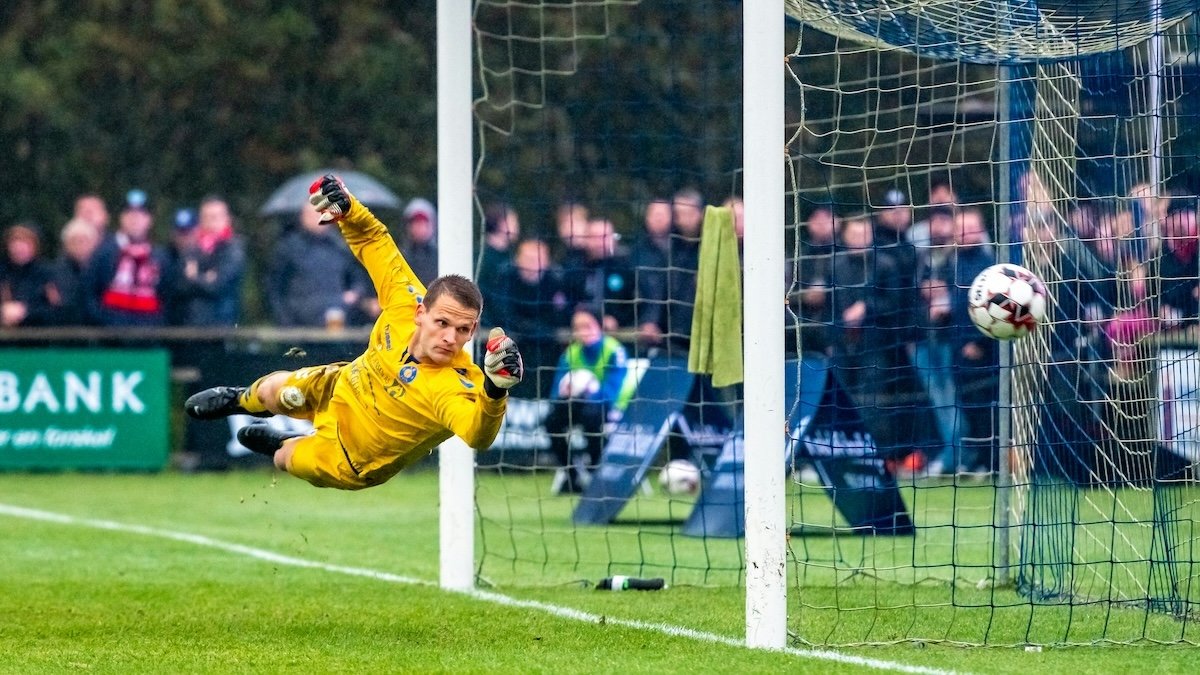
3. Image Stabilization
An image stabilization system is handy for sports photographers. Telephoto lenses are very sensitive to movement when you use them at the higher end of the focal length. An image stabilizer helps to reduce the effects of camera shake.
Image stabilization also lets you use slower shutter speeds with less risk of blur. It’s ideal for night matches and indoor sporting events. It also helps because telephoto lenses often have slow max apertures.
Image stabilizers are handy but not essential for all sports photographers. Many cameras have built-in image stabilization. So you can use a lens without stabilization and still achieve sharp results.
4. A Low Max Aperture
The max aperture is important in any lens. The lower the f-stop number, the more light it allows. A lower max aperture, like f/2.8, gives you more options in low-light situations. You can also use faster shutter speeds for action shots.
While an f/4 max aperture isn’t bad, an f/2.8 gives you more light to work with. A lens with a lower max f-stop is better in low-light conditions. Consider it if you want this to shoot night sports or indoor events.
Conclusion: The Best Lens for Sports Photography
Do you want your sports photos on the cover of Sports Illustrated or FourFourTwo? Then, the first thing you need is the best lens for sports photography. It’ll help you get the shots you need to succeed as a sports photographer.
The Canon EF 70-200mm f/2.8L IS III is our best sports photography lens choice. It’s a fast lens with a versatile focal length range that’s perfect for sports photographers. The large f/2.8 aperture helps you cover night and indoor sporting events.

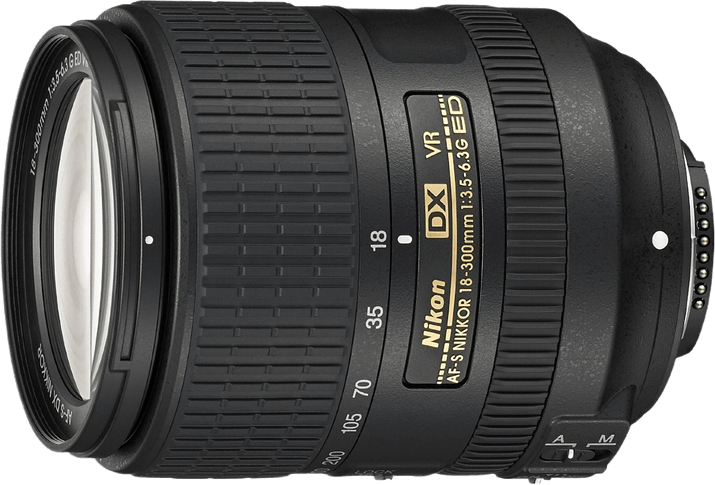
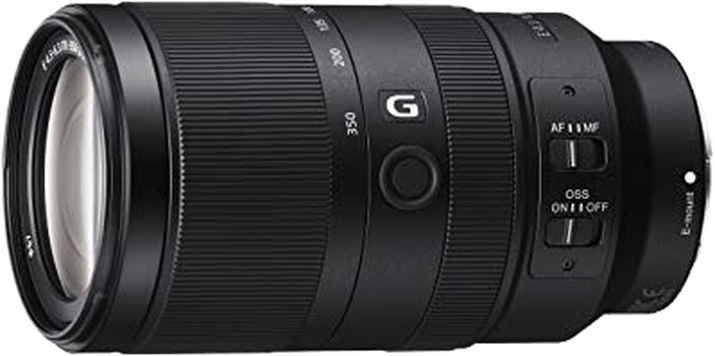
Conclusion: The Best Lens For Sports Photography
Conclusion Text




